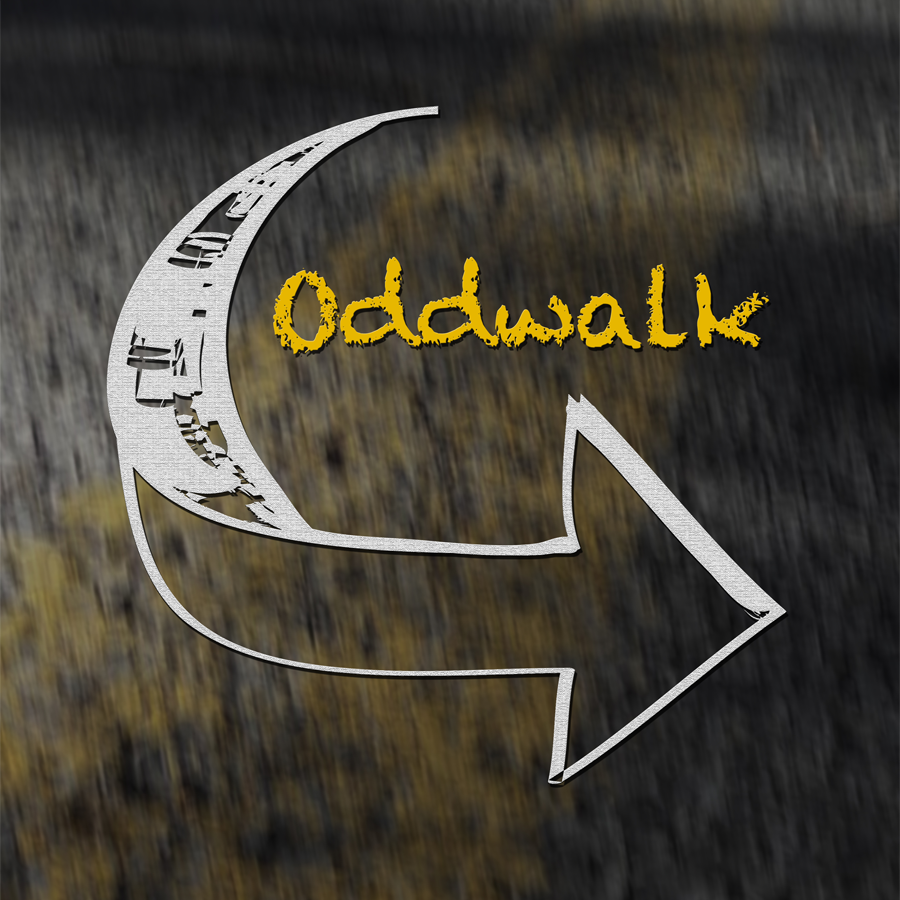Today, I (Shannon) am starting Weight Watchers—again. I am at least 125 lbs. heavier than I should be for someone my height. I’m not eating right, exercising, or setting a good healthy example for my children. And what’s worse is that my terrible eating habits have caused me to make other unhealthy choices like being…
Category: ministry
catholicism, family, friends, JesusJusticeJoy, Joy, ministry, music, odd, oddwalkia, reflection
Christian Silliness and Joy
 Anyone who has heard me (Shannon) talk about my Boy Scout days for any length of time might have noticed a glaring absence from that account: the complete lack of references to any actual scouting topics. There’s typically no talk of merit badges, rank advancement, and leadership roles. It’s not that those things weren’t a part of my experience. They certainly were. I earned many merit badges, advanced to the Life rank, and held several leadership positions in the troop. The reason those things are typically left out is because, in the end, they just don’t matter to me all that much. When I think about my time as a Scout, it’s the time spent with the other boys that matters the most to me. The boys in my troop were my first true friends. Those were the guys who, outside of my family, allowed me to be the bumbling, awkward person I was, without too much pressure to change.
Anyone who has heard me (Shannon) talk about my Boy Scout days for any length of time might have noticed a glaring absence from that account: the complete lack of references to any actual scouting topics. There’s typically no talk of merit badges, rank advancement, and leadership roles. It’s not that those things weren’t a part of my experience. They certainly were. I earned many merit badges, advanced to the Life rank, and held several leadership positions in the troop. The reason those things are typically left out is because, in the end, they just don’t matter to me all that much. When I think about my time as a Scout, it’s the time spent with the other boys that matters the most to me. The boys in my troop were my first true friends. Those were the guys who, outside of my family, allowed me to be the bumbling, awkward person I was, without too much pressure to change.
One of the things I discovered through my time in scouting was my love of music performance. I wouldn’t have called it “music performance” back in the day, of course. Had I been forced to come up with a name, I might have called it: “having a blast with my friends, singing and making up songs and drumming on a tortilla chip box in the back of the van, while Mr. Bruss drove us to the campout”. Whether we were on our way to an outing, sitting around the campfire, or just hanging out at a troop meeting, these kinds of experiences helped me discover how much I loved entertaining and engaging audiences and, later, leading congregations in music and prayer. As I grew into adulthood, and my skills developed, I ended up with hundreds of opportunities to share my musical gifts.
Even now, some of the most fun I have planning music are times when it’s just me, a guitar, and a group which is ready to get silly. Sometimes that’s a churchy group, but most times, it isn’t. This is when I can just be dumb, make people laugh, and sing really loudly. Opportunities like these have given me songs like The Dooley Boy Rock, At The Grotto, Mexican Café, Shay Shay Cool Yay, Mr. Crocodile, When The Spirit Says, Dum Dum Deedle, I’m a Little Teapot/We Will Rock You, and many others. These songs are so goofy, but are so fun to do.
Today, along with my friends Chris and Isaiah Korte, I am performing two Week of the Young Child concerts in Kirksville, MO. For the thirteenth consecutive year, preschoolers, daycare kids, and kindergartners from around Kirksville will gather at Rotary Park to spend about forty-five minutes singing a lot of the dumb songs I’ve collected over the years. We’ll scream and encourage the kids to scream as well. We’ll do ridiculous hand motions and laugh a lot. And, while these aren’t Christian events, per se, the expression of joy will leave little doubt that God is in it somehow.
catholicism, family, friends, JesusJusticeJoy, Justice, keytar, ministry, pope, quote, reflection, retreat
If you don’t…
 There’s a new meme circulating around, like the one here, which I (Orin) have made a version of in a tongue-in-cheek sort of way. The gist of the meme in general is for a person to point out when they are at their worst and when they are best, and that some significant other in their lives needs to love the meme-making person at their worst, or else that significant other doesn’t deserve the meme-maker at their very best.
There’s a new meme circulating around, like the one here, which I (Orin) have made a version of in a tongue-in-cheek sort of way. The gist of the meme in general is for a person to point out when they are at their worst and when they are best, and that some significant other in their lives needs to love the meme-making person at their worst, or else that significant other doesn’t deserve the meme-maker at their very best.
(Describing and analyzing memes makes them even more funny, right?)
Anyway, what I’m going for here, by way of amusement, is that 1) I’m at my worst when I pick up the keytar and “try” to be “cool” (which is quite possibly accurate), and 2) that I don’t really have a best – in a way, the joke is possibly even that my worst is all I have. When seen through eyes of faith, of course, that’s all wrong. The meme as a whole is asking another to love unconditionally – and so far, so good. But what rubs me the wrong way a little bit, is that most of these memes try to distinguish human worth and value by something pretty superficial – either physical appearance, or by certain accomplishments, or other external things. Something Oddwalk often tries to “get at” when present retreats is that our worth, our dignity, is given us by God, that we are created by God in God’s image and likeness, that we are temples of the Holy Spirit as a dwelling for the Divine. Each of us, regardless of gender, race, any economic or social status, even regardless of our faith (or lack thereof) have this innate dignity. Nothing can change it, nothing can take it away.
If we were to try to make this meme about God’s love for us, we would quickly find we couldn’t, really. Sure, we are all sinful, and in those worst of times, God still loves us as much as ever. And to try to say that God might not as some point deserve us, well, that’s just kooky, to put it colloquially. And as God loves us, so we must try to love another: to love at all times, and to never place ourselves on a pedestal, that someone feels they must earn (or deserve) our love. This Christian dignity, once recognized and lived out, will truly change the world, making it an infinitely more just and peaceful place. We must not only live love, we must be love, at all times. Are you ready to pick up the challenge?
Pope Francis, in “Gaudete et Exsultate,” tells us that he often likes
“to contemplate the holiness present in the patience of God’s people: in those parents who raise their children with immense love, in those men and women who work hard to support their families, in the sick, in elderly religious who never lose their smile.”
May we too all see holiness in every person we meet!
bible, catholicism, JesusJusticeJoy, Joy, lent, liturgy, ministry, music, prayer, reflection, scripture
Answer Me
 Each year, at the parish where I (Orin) direct music, the school children attend Mass on what is nicknamed “Spy Wednesday,” Wednesday of Holy Week, because of how Judas and his role in the passion is featured in the Gospel passage of the day. It is in fact the last Mass before the Thursday liturgies of Triduum: Chrism Mass and/or the Mass of the Lord’s Supper.
Each year, at the parish where I (Orin) direct music, the school children attend Mass on what is nicknamed “Spy Wednesday,” Wednesday of Holy Week, because of how Judas and his role in the passion is featured in the Gospel passage of the day. It is in fact the last Mass before the Thursday liturgies of Triduum: Chrism Mass and/or the Mass of the Lord’s Supper.
I think, though, that more than the other readings of the day, and more than other psalms, the psalm of the day, part of Psalm 69, is one of my favorites. Here it is, in it’s entirety, as the responsorial psalm from Wednesday’s mass:
R. (14c) Lord, in your great love, answer me.
For your sake I bear insult,
and shame covers my face.
I have become an outcast to my brothers,
a stranger to my mother’s sons,
because zeal for your house consumes me,
and the insults of those who blaspheme you fall upon me.R. Lord, in your great love, answer me.
Insult has broken my heart, and I am weak,
I looked for sympathy, but there was none;
for consolers, not one could I find.
Rather they put gall in my food,
and in my thirst they gave me vinegar to drink.R. Lord, in your great love, answer me.
I will praise the name of God in song,
and I will glorify him with thanksgiving:
“See, you lowly ones, and be glad;
you who seek God, may your hearts revive!
For the LORD hears the poor,
and his own who are in bonds he spurns not.”R. Lord, in your great love, answer me.
I think what appeals to me about this psalm are two separate yet connected ideas: Our faith as a journey, and prayers of lament.
I think, sometimes, our faith experience as we live it today has lost a sense of lament: a profound expression of sadness and grief. Surely there is some of that sometimes, particularly when dealing with a death of a friend or relative. But, anecdotally, in other instances when one might turn to lament, what I see instead are things like anger, revenge, or simply “fixing” the cause of the lament in convenient but perhaps not the most meaningful of ways. What does that mean? It means instead of turning our sorrow to God, we attempt to alleviate it on our own: by expressing other emotions, by taking actions that are typically sinful and hurtful to others and ourselves, or by engaging in more of a culture which oftentimes seeks instant gratification. (In some ways, we’ve lost definitions and distinctions in and around words and feelings like “love,” “need,” “want,” “desire,” and so on, but that’s probably material for another post someday.)
Lament, even anger at God, is an okay place to be and an okay way to pray. God expects nothing less from our human experiences. God lived those emotions as Jesus Christ, fully God and fully human. Go to God with sorrow, lament, and even anger. Let God speak to you about those things. Let God soothe and console, and even fill the empty places in your heart.
The Psalms of lament, which include Psalm 69 above, always have a moment where the voice of the psalm turns the corner. Note the last verse, which has jumped ahead in the psalm a fair amount: I will praise the name of God… the Lord hears the poor…” God hears us, and our lament, through God, can become joy. God is in the lament, knows the lament, and always wants for us, ultimately, joy. It is up to us, though, in those times, to remember God is with us, and turn to God with our needs.
May Holy Week blessings be with one and all. Orin
amazing, catholicism, Jesus, lent, ministry, music, prayer, reflection, Twenty-Third Publications, video
What Wondrous Love
JesusJusticeJoy, Justice, ministry, music, oddwalkia, reflection, scripture, Twenty-Third Publications
Offer What You Have
Dm—C—G/B—Gm/Bb—Dm/A—E7/G#…A7/G—D7/F#…G7/F— I’m sure to most of you, the line above gives the appearance that a two year-old got a hold of my keyboard. Some of you, though, will recognize this collection of letters and slashes as guitar chords. It would take too long to explain why, but this particular progression of chords was a bit…
announcements, catholicism, christmas, good news, Jesus, JesusJusticeJoy, LCF, lent, liturgy, Mary, merchandise, ministry, music, prayer, quote, reflection, WLP
To, or Through?
Hello all, Orin here. I realized as I sat down to craft this week’s Jesus-Justice-Joy post that Shannon and I have been remiss in letting you know a bit of exciting news. In addition to the book that will be coming out this July sometime, we’ve also both been writing new music, and incorporating some…
family, JesusJusticeJoy, Joy, ministry, music, reflection, scripture
Day(s) of Joy
I have been a pastoral musician now for about twenty-one years. Early on, when I was still learning what that meant, I was called upon quite often to lead music for Mass and for other prayer and retreat experiences. Among the songs I frequently played back then was Carey Landry’s, And The Father Will Dance.…
